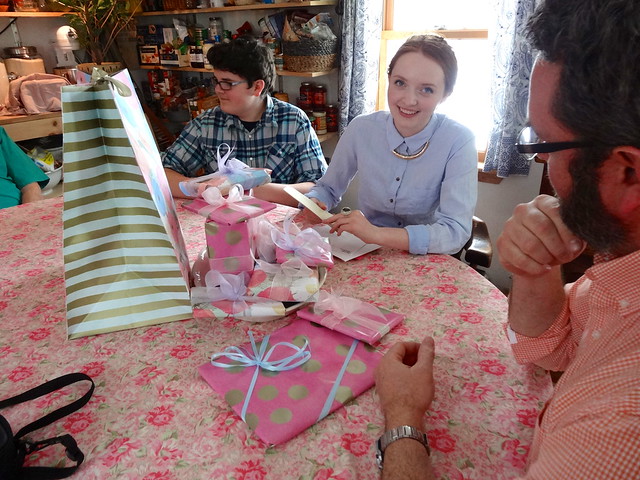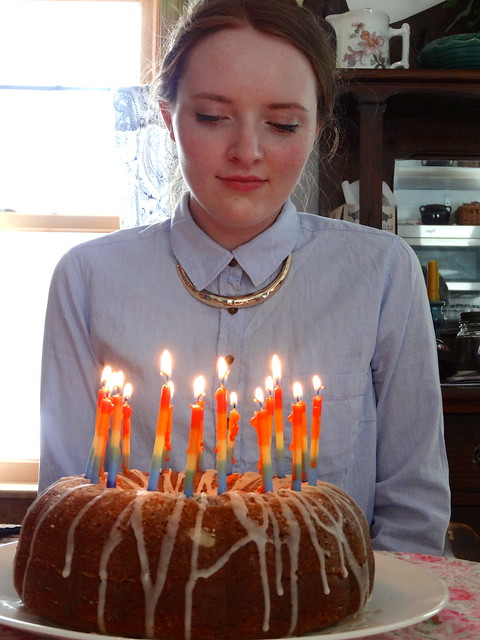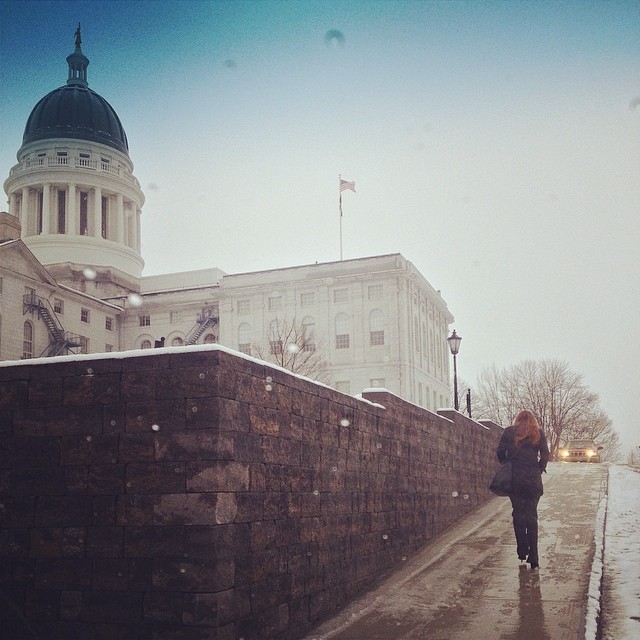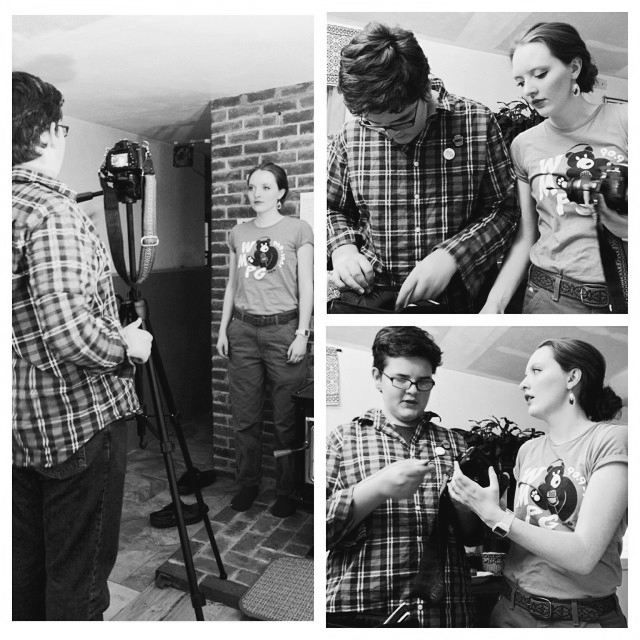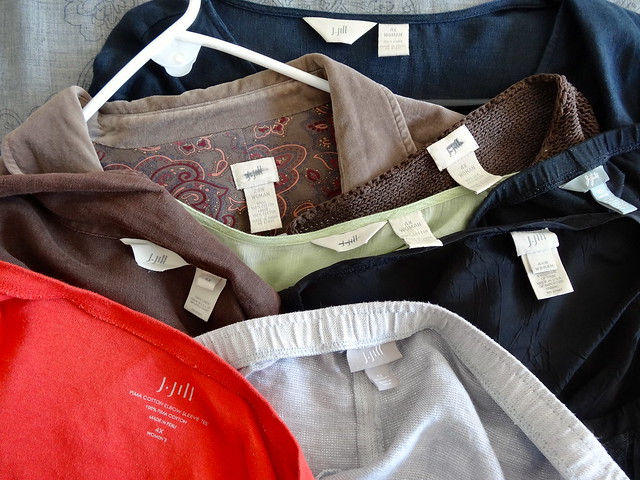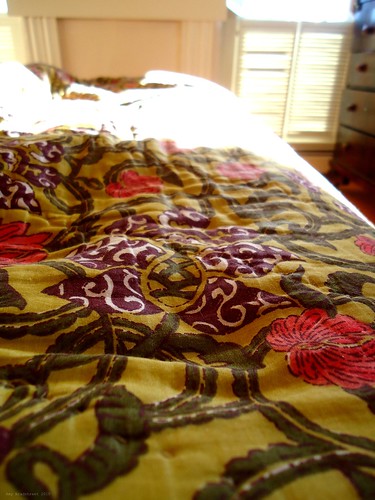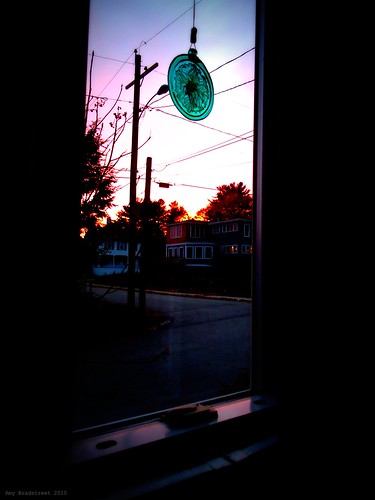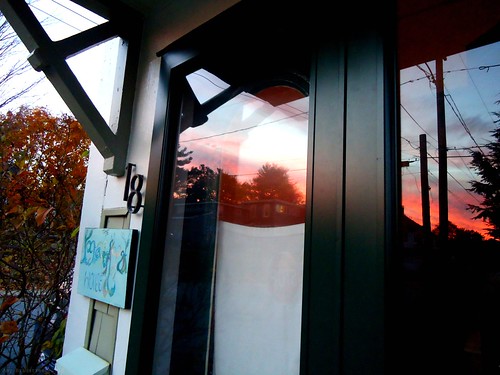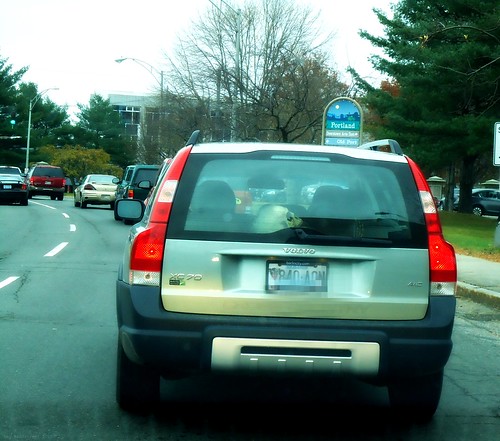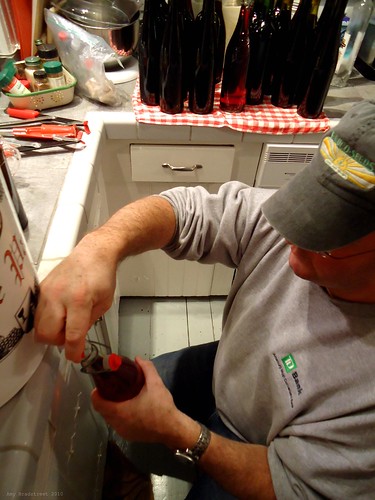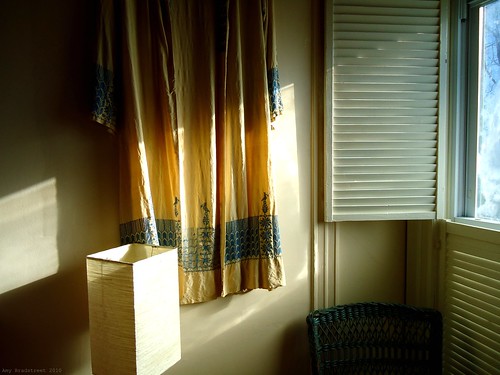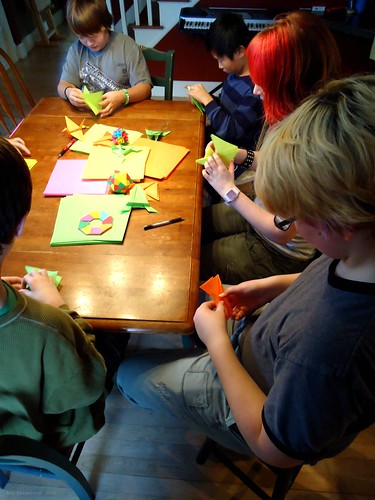As we begin activities and pursue our interests and move into our fall routine, we are as committed as ever to unschooling. Inescapable, however, is the focus on school. Back-to-school promotions, sales events, scheduling, so much is centered on school. And while we benefit, certainly, from uncrowded libraries, museums, parks and a wide range of other venues, the silence, the lack of young peoples' presence is also unsettling; their voices go unheard, their ideas and needs are unmet and society can forget them for six or more hours a day. For these reasons, when our unschoolers are out in the world, people (read
adult people) question their presence. Sometimes with polite interest, more times with rudeness. But always, always, the question is
why aren't you in school?, or it's companion
but how can you learn anything without school?
Sometimes these questions are asked
in a larger forum, on TV or in news articles and often unschooling is looked at with scrutiny, and more unfortunately, with prejudice. This is why many families are hesitant to talk to the media, and simply because, how does one convey an entire philosophy of living, parenting and being present in a few sentences or minutes? It's not easy, and the risk is always there for misunderstanding and misrepresentation. It takes an entire paradigm shift, in one's thinking, understanding and living, and it's a shift that is required
just about every waking moment of unschoolers and unschooling parents; it is perhaps unreasonable to expect that media should grasp the philosophy, having only grappled with it for the brief length of an interview.
There are other risks associated with speaking publicly about unschooling, (beyond any privacy risks) as well. Should any one family be the spokesperson for unschooling, when unschooling certainly has key principles, to the world, it can look very different from family to family? Currently (always), there is an ongoing discussion in the unschooling community about unschooling philosophy and its
principles, who decides those principles and are some people adhering to unschooling more appropriately (if appropriate applies, even) than others. As such, there's a certain wariness and responsibility many unschoolers feel when speaking openly about our learning philosophy.
This is not to say that there are never positive, informative and affirming ways in which to discuss unschooling openly. Many have written and published books that have gone on to be cornerstones to unschooling philosophy. There are numerous,
amazing blogs that chronicle the lives of unschooling people. Many unschoolers produce videos for YouTube or present and conferences or other forums regarding their experiences. Last week (September 5, 2011) Olivia, 14, produced and co-hosted a show on unschooling for
WMPG's Blunt Youth Radio. Her intent was to present unschooling without debate and without contrasting it to school and to present unschooling to the greater community, as an Unschooling 101. During the program, Olivia's co-host asked her some questions about her own unschooling experience and later, they interviewed several people, in-studio and via the phone, including yours truly.
Marieke, lives locally and so she was in-studio. As a grown, always-unschooler who recently just earned her Masters degree, she offered her own fascinating and unique perspective on her unschooling, and she remains a steadfast supporter of the philosophy. Olivia also interviewed
Kathryn Baptista, the founder and organizer of the
Northeast Unschooling Conference and the mother of grown unschooler and musician,
Julian Baptista. The show, I think, was very successful and stayed true to Olivia's goal and intent with presenting unschooling. (I wish that I could link you to the archived recording, but it is unavailable at this time. I will see what I can do to remedy this.)
Sometimes, too, people in the media are truly interested in the unschooling philosophy and seek out those families willing to share their experiences and are invited to do so without being antagonized or misrepresented by the interviewer, as was the case at the end of last week, when the
local paper interviewed our family. The author, Gillian Graham, came to our home and sat with us around our table for over an hour, listening mostly, to our rather enthusiastic and probably overwhelming perspectives on unschooling. We are grateful to her for her willingness to listen and report on a topic so dear to us. Similarly,
this report offered up a fair look at unschooling, just as most education articles were focused on back-to-school topics.
While it's not always easy to discern who is going to be open-minded enough to report on unschooling without bias, I think it's important for unschoolers to keep trying. While negative and hostile comments and reactions from our own circle of family and friends, communities, institutions and media can drive us to isolation or only willing to seek out the company of other unschoolers, there are people out there willing and ready to learn from unschooling. I see increasing evidence that unschooling philosophy (knowingly or not) is being looked to, when news pieces on education reform talk about
adoption of technology in the classroom,
"Kids, especially in kindergarten, who are five years old, are very hands on and learn best when they're actually manipulating information and manipulating objects,"says Sherwood Heights principal Laura Shaw. She says iPads also provide children with immediate feedback."
or how classrooms are
using resources long used by unschoolers to help students learn.
"Initially, Thordarson thought Khan Academy would merely be a helpful supplement to her normal instruction. But it quickly become far more than that. She’s now on her way to “flipping” the way her class works. This involves replacing some of her lectures with Khan’s videos, which students can watch at home. Then, in class, they focus on working problem sets. The idea is to invert the normal rhythms of school, so that lectures are viewed on the kids’ own time and homework is done at school. It sounds weird, Thordarson admits, but this flipping makes sense when you think about it. It’s when they’re doing homework that students are really grappling with a subject and are most likely to need someone to talk to. And now Thordarson can tell just when this grappling occurs: Khan Academy provides teachers with a dashboard application that lets her see the instant a student gets stuck."
More telling is that education reformers have begun using the very language and actual principles of unschooling, as
in this Daily Riff article,
"Since the role of the teacher has changed, to more of a tutor than a deliverer of content, we have the privilege of observing students interact with each other. As we roam around the class, we notice the students developing their own collaborative groups. Students are helping each other learn instead of relying on the teacher as the sole disseminator of knowledge. It truly is magical to observe. We are often in awe of how well our students work together and learn from each other."
Then there are the popular bloggers, like Seth Godin,
who question the very existence of school as we currently know it and challenge us all to do the hard work of questioning school, too.
Perhaps as the very schools we unschoolers choose to do without adopt more and more unschooling principles, the questions we get from the clerk at the grocery store will become less critical, and more curious. Perhaps the parks and museums will become learning hubs once more, as the classroom walls expand outward, into the world. We can continue unschooling, adding our voices and principles to the education discussion, as we become less reticent to do so as the system changes. We can hope.
